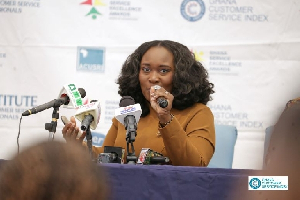The Ghana Education Service (GES) in collaboration with development partners has joined the rest of the world to observe International Menstrual Day, with a call for easy access to menstrual hygiene products for females during COVID-19 pandemic.
"The economic and other social factors of COVID-I9, including the potential loss or reduction in family income, coupled with school closures and increase in the cost of commodities, may result in many adolescent girls and women having less ability to afford or access relevant sanitary materials,” it said in a statement.
The statement, signed by Mr Anthony Boateng, Deputy Director of GES, was copied the Ghana News Agency, in Accra.
This year's theme is: "It's time for action". Due to the pandemic, education on the Day would be done on social media, radio and television.
Some of the events would be short films, media interviews and Webinar seminar with the Minister of Education as a speaker with others from the Ministry of Sanitation, Water Resources, Ghana Health Service, UNICEF, CONIWAS and GES.
The statement, quoting the Multiple Indicator Cluster Survey 2017/2018 in Ghana, said 48.5 per cent of households had handwashing facilities with water and soap, while one out of three women did not have access to a toilet facility during menstruation.
It said many did not have access to sanitary products and they managed their menses using unhygienic products.
The closure of schools, it said, may also lead to fewer adolescent girls and boys having basic information concerning menstrual hygiene management.
It, therefore, called for continuous education targeted at adolescents and their parents for the provision of gender-friendly toilets with changing rooms, as well as to demystify myths and taboos related to menstruation.
World Menstrual Day is celebrated annually in May to sensitise the public on menstrual hygiene.
General News of Friday, 29 May 2020
Source: GNA













